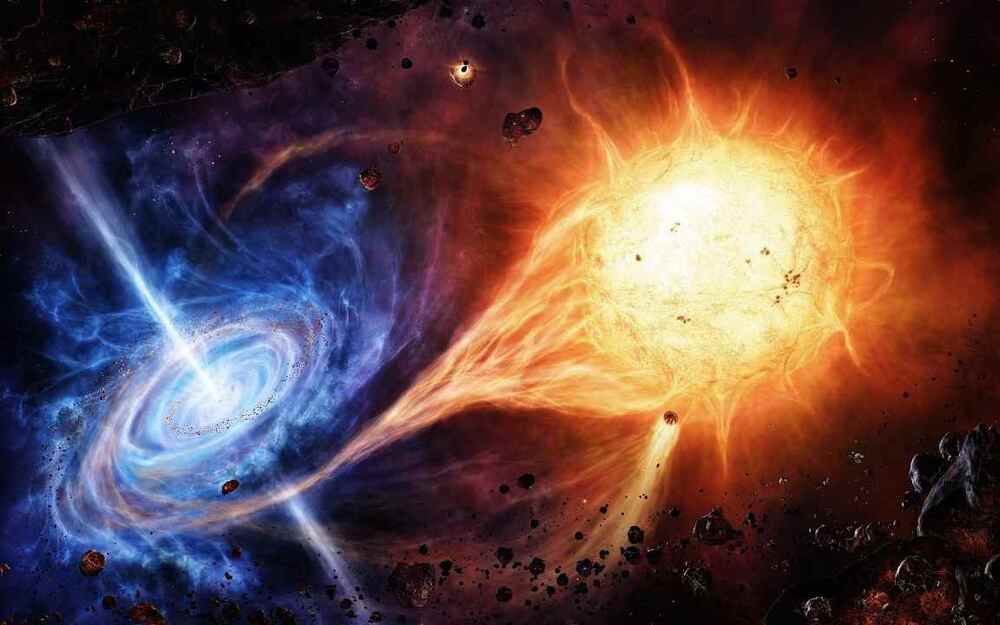Although our universe may seem stable, having existed for a whopping 13.7 billion years, several experiments suggest that it is at risk—walking on the edge of a very dangerous cliff. And it’s all down to the instability of a single fundamental particle: the Higgs boson.
In new research by me and my colleagues, just accepted for publication in Physical Letters B, we show that some models of the early universe, those which involve objects called light primordial black holes, are unlikely to be right because they would have triggered the Higgs boson to end the cosmos by now.
The Higgs boson is responsible for the mass and interactions of all the particles we know of. That’s because particle masses are a consequence of elementary particles interacting with a field, dubbed the Higgs field. Because the Higgs boson exists, we know that the field exists.
